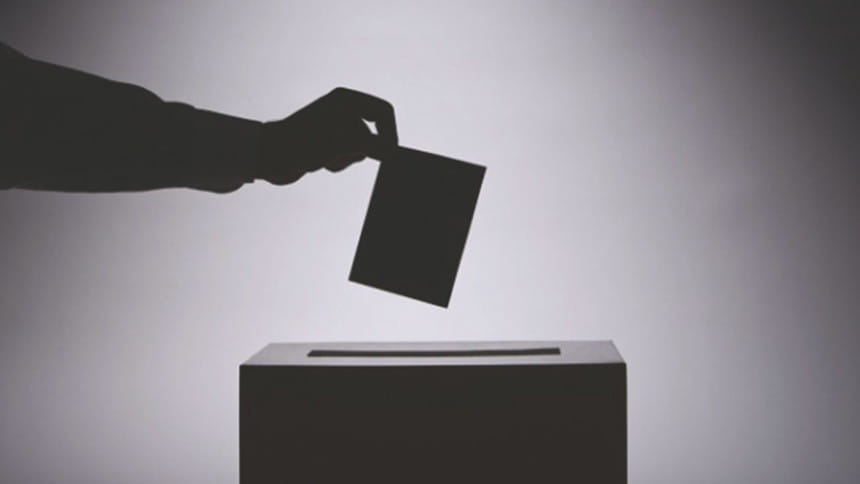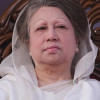Mini national polls, mighty excitement in store

The schedules for polls to the 234 municipalities are upon us, as if tip-toeing on a slippery wicket to a sudden grand curtain raiser about to happen. The notion of 'grandstanding' is attributable to the fact that the elections so far billed to be party-less are going to be held on political party tickets for the first time.
The elections to 234 mayoral positions and 3,690 councilors' posts are slated for December 30 but the last date for filing nominations is as proximate as December 3. With the scrutiny of nominations on December 5-6 and last date of withdrawal of names on December 13, the election is excitingly closing in on us.
That the elections are being held is creditable for the government and the EC where local polls have had a history of delays. Belated elections meant placing selected administrators in municipalities with ill-effects that the people had known only too much of to want to see the back of it. There, the Awami League responded positively to a longstanding public demand for elected mayors. In part the step may have been prompted to give an aperture to the BNP for reentry into electoral politics.
The mayoral posts will be contested by political parties fielding their nominees directly but the councilors will be elected on party-less basis.
Why the councilors are excluded from being elected on party ticket is a question that may be open to four-fold interpretation. First, a gradualist approach is perhaps being taken to limit the change to the mayors first and then extend it over to the councilors in future elections. After all, the number of councilors' posts presents an unwieldy proposition at this stage to hold elections on party tickets. Second, a balance is aimed to be struck amid a plurality of views.
Third, the consideration could also have been strategic or tactical in that loss of mayoral seats may be balanced out by a possible good showing in the councilors' polls. Fourth, and collaterally it may lead to obstruction in the working of the municipalities.
The rules of business will have to be carefully crafted to optimise the performance of the municipalities.
The question is: What qualitative difference would the municipalities make in delivering services after the induction of mayors on party basis vis-à-vis party-backed candidates winning the mayoral office as in the past?
The chief dividend to come from the municipality election relates to making the dull and monotonous politics exciting, engaging and participative. Whether this is flagging a 'new normal' in the political equations, only time will tell, but sooner rather than later.
BNP has nothing to lose but something to gain from the upcoming polls. If the elections are held smoothly and the party wins places it would be a value addition to the party's strength. If it loses, the party can say that no free and fair elections are possible under the government.
On the other hand, the government would get a mileage after the tainted January 5, 2014 general elections should the municipal polls pass off peacefully, fairly and productively. In the event, the EC would score some brownie points against the backdrop of its rather sagging image.
It is indeed an opportunity for the BNP in a special way indicative of a certain government gesture to draw BNP into the polls. The signal should not be lost on the BNP. The party is likely to have an important advantage over the AL because of the new electoral code of conduct. This debars individuals enjoying government benefits from electioneering for party candidates. The list of exclusion is long whilst the BNP chairperson and her party colleagues will be free to campaign for their party candidates.
The BNP's track record in the upper strata of local government polls shows that between 2010 and 2011, candidates backed by it performed better in the municipal polls. BNP-supported candidates bagged 92 mayoral posts as against AL-backed candidates' 88 amongst 236 municipalities. In 2013, BNP-blessed candidates made a clean sweep of Rajshahi, Khulna, Barisal, Sylhet and Gazipur City Corporation polls.
Awami League supported candidates, however, defeated their BNP counterparts in Dhaka and Chittagong City Corporation polls earlier this year.
The elections will be a test of AL's popularity on the basis of its achievements. At the other pole, it will be a measure of whether BNP's vote bank remains intact or not.
This series of party-basis elections to the mayoral posts is a precursor of all local government elections to be held on a uniform principle with the parliamentary polls as is the worldwide practice. That is where the current venture holds a far-reaching implication.
The writer is Associate Editor of The Daily Star.

 For all latest news, follow The Daily Star's Google News channel.
For all latest news, follow The Daily Star's Google News channel. 








Comments